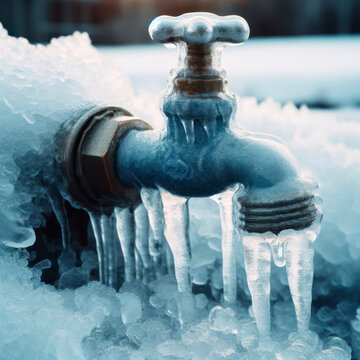Tips to Keep Your Pipes from Freezing Issues: Crucial Guidance
Tips to Keep Your Pipes from Freezing Issues: Crucial Guidance
Blog Article
Listed here in the next paragraphs you can get more brilliant insight in relation to How To Avoid Freezing Pipes.

Cold weather can wreak havoc on your pipes, especially by freezing pipes. Here's just how to avoid it from happening and what to do if it does.
Intro
As temperatures decline, the danger of icy pipes boosts, potentially bring about expensive fixings and water damage. Recognizing exactly how to stop frozen pipelines is important for home owners in chilly climates.
Prevention Tips
Shielding vulnerable pipelines
Cover pipes in insulation sleeves or make use of heat tape to safeguard them from freezing temperature levels. Concentrate on pipes in unheated or outside locations of the home.
Home heating strategies
Keep indoor spaces effectively heated up, particularly areas with plumbing. Open up closet doors to allow warm air to distribute around pipelines under sinks.
Just how to identify frozen pipes
Look for decreased water flow from taps, unusual odors or noises from pipelines, and noticeable frost on revealed pipelines.
Long-Term Solutions
Structural changes
Take into consideration rerouting pipelines far from exterior wall surfaces or unheated locations. Include additional insulation to attics, cellars, and crawl spaces.
Updating insulation
Purchase top notch insulation for pipes, attics, and walls. Correct insulation assists maintain consistent temperature levels and decreases the threat of frozen pipelines.
Safeguarding Exterior Plumbing
Yard hose pipes and outside faucets
Separate and drain yard hoses before winter. Set up frost-proof faucets or cover outdoor taps with insulated caps.
Comprehending Icy Pipes
What creates pipes to ice up?
Pipelines ice up when exposed to temperatures listed below 32 ° F (0 ° C) for expanded durations. As water inside the pipes freezes, it broadens, taxing the pipeline wall surfaces and possibly creating them to break.
Risks and damages
Frozen pipes can cause water disturbances, home damage, and costly repair work. Ruptured pipes can flood homes and create comprehensive architectural damages.
Signs of Frozen Pipes
Determining icy pipes early can avoid them from breaking.
What to Do If Your Pipes Freeze
Immediate actions to take
If you presume frozen pipelines, keep faucets open up to soothe pressure as the ice thaws. Utilize a hairdryer or towels soaked in warm water to thaw pipes gradually.
Verdict
Protecting against frozen pipes needs proactive actions and quick actions. By recognizing the causes, indications, and safety nets, house owners can shield their pipes throughout cold weather.
6 Proven Ways to Prevent Frozen Pipes and Protect Your Home
Disconnect and Drain Garden Hoses
Before winter arrives, start by disconnecting your garden hoses and draining any remaining water. Close the shut-off valves that supply outdoor hose bibs and leave the outdoor faucet open to allow any residual water to drain. For extra protection, consider using faucet covers throughout the colder months. It’s also important to drain water from any sprinkler supply lines following the manufacturer’s directions.
Insulate Exposed Pipes
Insulating your pipes is an effective way to prevent freezing. Pipe insulation is readily available at home improvement stores and is relatively inexpensive. Pay close attention to pipes in unheated areas such as the attic, basement, crawl spaces, or garage. Apply foam insulation generously to create a buffer against the cold. You can also wrap your pipes in heat tape or thermostat-controlled heat cables for added warmth.
Seal Air Leaks
Inspect your home for any cracks or openings that could let in cold air. Seal any holes around the piping in interior or exterior walls, as well as the sill plates where your home rests on its foundation. Additionally, make sure to keep your garage door closed unless you’re entering or exiting. Leaving it open creates a significant air leak that can lead to frozen pipes.
Allow Warm Air Circulation
During cold snaps, it’s essential to allow warm air to circulate evenly throughout your home. Leave interior doors ajar to promote better airflow. Open kitchen and bathroom cabinets to help distribute heat consistently around the rooms. If you have small children or pets, be sure to remove any household chemicals or potentially harmful cleaners from open cabinets for safety.
Let Faucets Drip
A small trickle of water can make a big difference in preventing ice formation inside your pipes. When temperatures drop significantly, start a drip of water from all faucets served by exposed pipes. This continuous flow helps prevent the water from freezing. Additionally, running a few faucets slightly can relieve pressure inside the pipes, reducing the chances of a rupture if the water inside does freeze.
https://choateshvac.com/6-proven-ways-to-prevent-frozen-pipes-and-protect-your-home/

Do you appreciate reading about Prevent Frozen Pipes ? Make a comment down below. We will be happy to listen to your responses about this page. In hopes to see you back again later on. Do you know about anybody else who is serious about Helpful Tips to Prevent Frozen Pipes this Winter? Be sure share it. We recognize the value of your readership.
Visit Url Report this page